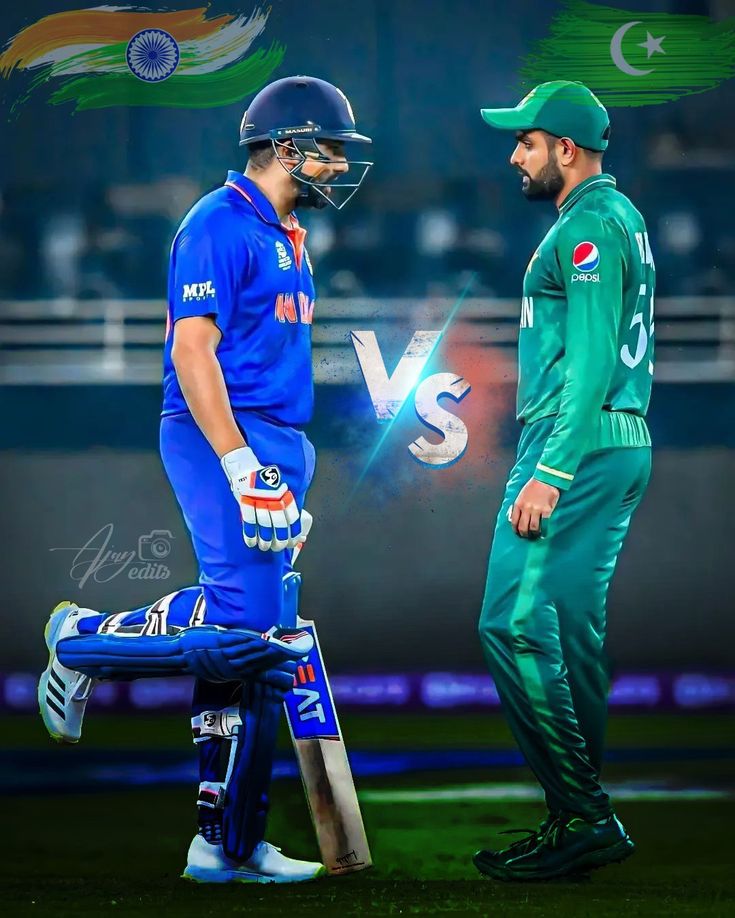Title: Why the Indian Cricket Team Doesn’t Play Bilateral Series with Pakistan
Date: April 24, 2025
India-Pakistan Cricket Relations in Danger 2025
In the cricket-loving subcontinent, few rivalries stir as much emotion as India vs Pakistan. Yet, fans have been deprived of regular India-Pakistan bilateral cricket series for over a decade. While the two nations continue to face each other in global tournaments like the ICC World Cup or Asia Cup, bilateral series have remained elusive. The reasons, though rooted in cricket, extend far beyond the boundaries of sport.
1: Pahalgam Terror Attack Casts Shadow Over India-Pakistan Cricket Relations
A recent terrorist attack in Pahalgam, Jammu and Kashmir, has once again strained already fragile ties between India and Pakistan, raising questions about the future of cricketing engagements between the two nations.
The attack, which claimed the lives of several civilians and security personnel, has sparked widespread condemnation across India. Preliminary reports suggest the involvement of Pakistan-based terror groups, further fueling diplomatic tensions.
In response, several Indian political leaders and former cricketers have urged the Board of Control for Cricket in India (BCCI) to boycott any upcoming matches involving Pakistan, including neutral-venue fixtures in ICC tournaments. While the two countries are not scheduled for any bilateral series, their potential face-off in future global events is now under scrutiny.
A senior BCCI official, speaking on condition of anonymity, said, “The decision to play Pakistan lies with the Indian government. After such incidents, it’s difficult to justify any sporting ties.”
With emotions running high and national security concerns taking center stage, the Pahalgam attack may further delay any hope of normalizing cricket ties between India and Pakistan.

2. Political Tensions at the Core
The primary reason for the lack of bilateral cricket between India and Pakistan lies in ongoing political tensions. Since the 2008 Mumbai terrorist attacks, in which Pakistani nationals were involved, diplomatic relations between the two countries have been severely strained. In response, the Indian government has adopted a firm stance on limiting bilateral engagements with Pakistan, including in sports.
The Indian Ministry of External Affairs has repeatedly stated that “terror and talks cannot go together,” a position that extends to cricket diplomacy. Any resumption of bilateral cricket is contingent on significant improvements in diplomatic ties.
3. Board of Control for Cricket in India (BCCI) Policy
The BCCI, one of the most powerful bodies in world cricket, follows the directive of the Indian government on matters involving Pakistan. Despite mutual interest from the Pakistan Cricket Board (PCB) to revive the cricketing rivalry, the BCCI has maintained a clear stance that bilateral series are not possible without government approval.
In 2022, then BCCI secretary Jay Shah reiterated that India would not travel to Pakistan for the Asia Cup, leading to the tournament being hosted in a hybrid format. Such decisions reflect the extent of political influence over cricket ties.
4. Security Concerns
Security has always been a major concern, particularly for Indian players traveling to Pakistan. Given the volatile geopolitical environment and history of unrest in the region, India has consistently cited the safety of players and officials as a key reason to avoid touring Pakistan.
Similarly, organizing matches in India involving the Pakistani team also presents challenges, with some states unwilling to host Pakistan due to local political sensitivities.
5. Impact on Fans and Cricket Diplomacy
For fans on both sides of the border, the absence of bilateral cricket is a major disappointment. India-Pakistan matches are among the most-watched in the world, often drawing hundreds of millions of viewers. Cricket, once seen as a tool of diplomacy—most notably during the 1987 and 2005 “cricket diplomacy” phases—has now become a casualty of frozen relations.
Still, every World Cup encounter rekindles the spirit and demand for more. The electric atmosphere, fierce competition, and mutual respect between players demonstrate how sport can unite, even if temporarily.
6. What the Future Holds
While there have been periodic discussions and unofficial back-channel dialogues, a full-fledged bilateral series remains unlikely in the near term. The resumption of cricket ties depends heavily on political will and diplomatic breakthroughs.
Cricket fans and analysts alike continue to hope for a thaw in relations that could pave the way for one of the greatest rivalries in sports to return in its full glory. Until then, India-Pakistan matches will remain limited to neutral venues and ICC events—where the stakes are high, and emotions run even higher.


